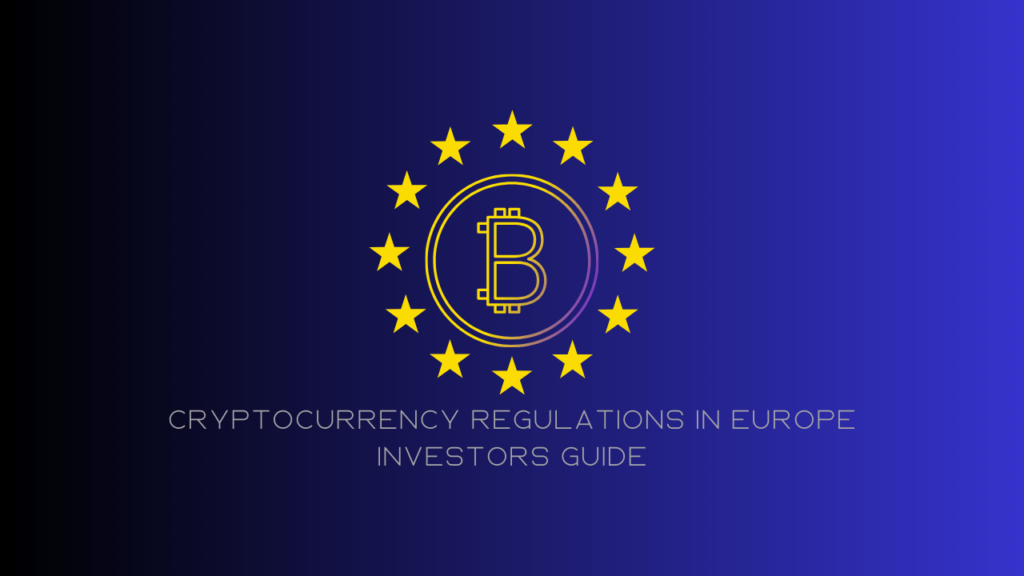Introduction
Cryptocurrency regulations in Europe are evolving rapidly, impacting investors, businesses, and blockchain projects. The European Union (EU) has taken significant steps to regulate the crypto market to ensure transparency, prevent fraud, and enhance investor protection. Whether you’re a seasoned trader or a beginner, understanding these regulations is crucial for compliance and success in the crypto industry.
The European Union’s Approach to Cryptocurrency Regulation
The EU aims to create a balanced regulatory framework that fosters innovation while protecting investors. Key regulatory developments include:
1. Markets in Crypto-Assets (MiCA) Regulation
The Markets in Crypto-Assets (MiCA) regulation, passed in 2023, is a landmark framework that standardizes crypto regulations across EU member states. Key aspects include:
- Licensing Requirements: Crypto service providers must obtain licenses to operate legally.
- Stablecoin Regulations: Issuers of stablecoins like USDT and USDC must maintain adequate reserves.
- Consumer Protection: Companies must provide clear information about risks and avoid misleading promotions.
- Market Integrity Measures: Crypto firms must adhere to anti-money laundering (AML) and counter-terrorism financing (CTF) regulations.
MiCA’s enforcement ensures that crypto firms comply with specific rules to avoid fraud, manipulation, and unfair market practices. The regulation also applies to crypto exchanges, wallet providers, and DeFi platforms operating within the EU, ensuring a more standardized approach to the industry.

- Picture from Freepik
2. Anti-Money Laundering (AML) and Know Your Customer (KYC) Policies
To combat financial crimes, the EU enforces strict AML and KYC requirements on crypto exchanges and wallet providers. This means:
- Users must verify their identity before trading or transacting.
- Exchanges must report suspicious activities to financial authorities.
- Privacy-focused cryptocurrencies face increased scrutiny.
The 6th Anti-Money Laundering Directive (6AMLD) extends criminal liability to businesses, meaning non-compliance with AML laws can result in severe penalties, including fines and imprisonment.
3. Central Bank Digital Currencies (CBDCs) and the Digital Euro
The European Central Bank (ECB) is developing a Digital Euro, which could complement existing cryptocurrencies. Unlike decentralized assets, a CBDC would be government-backed, ensuring stability but raising privacy concerns.
Key features of the Digital Euro:
- Designed for everyday transactions to function like physical cash.
- Regulated by the ECB, ensuring security and trust.
- Potential limitations on privacy, as transactions could be monitored by regulators.

4. Taxation on Cryptocurrency Earnings
Crypto investors in the EU must comply with taxation laws, which vary by country but generally include:
- Capital Gains Tax on crypto profits.
- Income Tax on staking, mining, or receiving crypto as payment.
- VAT Exemptions for crypto-to-crypto transactions in some nations.
Certain countries have taken additional steps to ensure compliance. For instance, Germany offers tax exemptions for crypto held longer than one year, while France requires comprehensive reporting of all crypto earnings.
Country-Specific Regulations
While the EU provides a unified framework, individual countries have additional regulations:
- Germany: Recognizes Bitcoin as legal financial instruments and imposes capital gains tax after a holding period of one year.
- France: Requires crypto firms to register with the Financial Markets Authority (AMF) and mandates high AML compliance.
- Italy: Introduced new tax rules on crypto gains exceeding €2,000, making it crucial for investors to report their earnings.
- Netherlands: Has stringent AML laws requiring crypto businesses to report transactions and comply with KYC procedures.
- Spain: Mandates full disclosure of crypto holdings abroad and enforces strict taxation policies.
- Portugal: Once known as a crypto tax haven, but recent amendments impose taxation on crypto gains above €5,000.

How These Regulations Impact Investors
1. Greater Security and Protection
Regulations reduce the risk of scams, fraud, and exchange collapses, making the crypto market safer for investors.
2. Compliance Costs and Limitations
While regulations protect investors, they also increase compliance costs for exchanges, leading to potential higher fees.
3. Stablecoin and DeFi Restrictions
Stronger stablecoin regulations could impact DeFi (Decentralized Finance) projects reliant on stable digital assets. This could result in increased operational costs for DeFi platforms and stricter controls on lending and borrowing services.
4. Increased Institutional Involvement
With clearer regulations, institutional investors are more likely to enter the market, driving mainstream adoption and price stability. Large financial institutions such as banks and investment firms now have a more structured environment to engage with digital assets without legal uncertainty.
5. Stricter Reporting and Tax Obligations
Investors must be vigilant in reporting their earnings and complying with tax obligations to avoid legal consequences. Failing to report crypto transactions can result in penalties and audits from tax authorities.
6. Impact on Crypto Businesses and Startups
While regulations offer a structured environment, they may also create challenges for crypto startups, which must now meet stricter compliance requirements. This could slow innovation but also filter out bad actors, making the industry more trustworthy.
7. Growth of Regulated Crypto Products
With the rise of regulations, investors can expect more regulated crypto investment products such as ETFs (Exchange-Traded Funds) and institutional-grade custody solutions, allowing safer participation in the market.
What Investors Should Do
- Stay Informed: Keep track of regulatory changes and how they affect your investments.
- Use Compliant Exchanges: Trade on platforms that adhere to EU regulations to avoid legal issues.
- Understand Tax Obligations: Consult a tax expert to ensure compliance with your country’s crypto tax laws.
- Diversify Investments: Consider both centralized and decentralized options to mitigate regulatory risks.
- Monitor Stablecoin Developments: As regulations evolve, changes in stablecoin policies could impact your investments.
- Keep Records of Transactions: Maintaining a clear record of your crypto transactions helps with tax reporting and legal compliance.

Picture from Freepik
Conclusion
Cryptocurrency regulations in Europe are designed to create a safer and more transparent market. Investors should stay updated on these changes to navigate the evolving landscape effectively. By following compliance guidelines and investing wisely, individuals can capitalize on the growing digital asset sector without legal complications.
As the EU refines its regulatory framework, crypto adoption is expected to rise, attracting more investors and institutional players. While these regulations may seem restrictive, they ultimately provide a more secure and stable environment for the future of digital assets.








